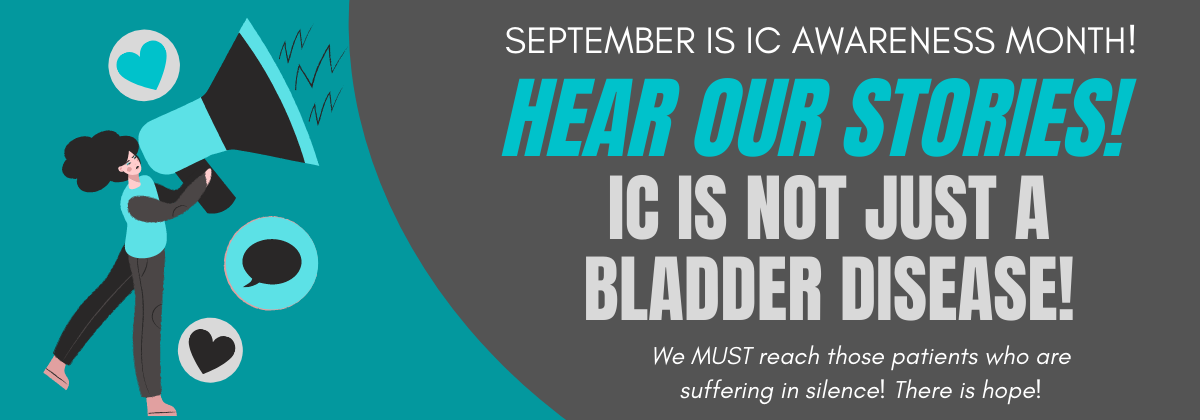It’s Time To Talk About IC & Pelvic Pain
Physical therapy may resolve symptoms of interstitial cystitis and chronic prostatitis
FOR IMMEDIATE RELEASE – September 1, 2015
![]() (Santa Rosa, CA) For the millions of men and women struggling with recurring bladder and/or prostate pain, finding relief for their symptoms can be difficult. Many have taken antibiotics for years under the mistaken impression that they have an infection. Others have spent thousands of dollars on medications for chronic prostatitis and interstitial cystitis with little success.
(Santa Rosa, CA) For the millions of men and women struggling with recurring bladder and/or prostate pain, finding relief for their symptoms can be difficult. Many have taken antibiotics for years under the mistaken impression that they have an infection. Others have spent thousands of dollars on medications for chronic prostatitis and interstitial cystitis with little success.
International IC and pelvic pain expert Ken Peters MD offered “It is frustrating that after all these years, patients still see five or six doctors without getting a comprehensive evaluation for their pelvic pain disorder. Eighty percent of the patients we see who have been on traditional bladder treatments jump off the table if you put your finger on their pelvic floor muscles.” This September, patients around the world unite to educate and raise awareness about interstitial cystitis / bladder pain syndrome (IC/BPS). One focus is the growing role of pelvic floor tension and myalgia in patients struggling with chronic urinary symptoms. It’s not unusual for symptoms to begin after events that provide trauma to the pelvic floor such as childbirth, surgery, riding a bicycle, repetitive lifting and sitting for long periods of time. Athletes are also at risk.
Jill Osborne MA, President of the Interstitial Cystitis Network, shared “Twenty years ago, we had no idea that so many patients had pelvic floor dysfunction which explains why traditional bladder and prostate therapies were ineffective and why many clinical trials failed. These patients needed physical therapy.” In 2012, the results from an NIH funded multi-center clinical trial found that myofascial physical therapy significantly reduced urinary symptoms associated with IC.
A small but growing number of clinicians now provide pelvic floor assessments and treatment for men and women. Ms. Osborne continued “Unfortunately, some doctors still don’t understand the influence of the pelvic floor on other organs. Patients, too, may not believe that their severe symptoms can come from their pelvic floor. If you struggle with urinary frequency, urgency, constipation, straining, pain with intimacy, pain in the pelvis, rectum or sexual organs, you should request a pelvic floor assessment. It takes five minutes. If present, PFD can be treated.”
In 2015, IC specialists are now creating individualized phenotypes for their patients to help target treatments more successfully. In a recent article, Dr. Christopher Payne suggested five key subtypes: Hunner’s lesions, bladder wall sensitivity, pelvic floor tension, pudendal neuralgia and functional somatic syndrome. Treatments would then be chosen accordingly.
The IC Awareness Month campaign encourages patients to be health activists in their community. They can distribute educational materials to physicians and clinics, design posters, start support groups, encourage their political representatives to issue proclamations, share their stories with local media outlets and donate to IC research centers.
Learn more about IC and the campaign by visiting our website, https://www.icawareness.org.
Download a PDF file of the press release here!
– – – – – – –
Additional media materials, backgrounders, expert interview opportunities, and IC fact sheets are also available.
Contact: Jill Osborne, President Interstitial Cystitis Network – PO Box 2159, Healdsburg CA 95448 (p) 707.538.9442 or 707.538.9446 (f) 707.538.9444 (e) jill@ic-network.com
Founded in 1995, the Interstitial Cystitis Network (https://www.ic-network.com) is a woman owned, “social advocacy” health education company dedicated to interstitial cystitis and other pelvic pain disorders. Using the internet, we create innovative solutions to the pressing problems facing patients diagnosed with urologic conditions, medical care providers who care for them and the research community seeking new treatments and cures. For the past 18 years, we have provided critical 24/7 support to patients in need, developed new educational materials, conducted vital research, provided webinars/lectures and created IC awareness campaigns, all at NO COST to the patients who visit our website.
